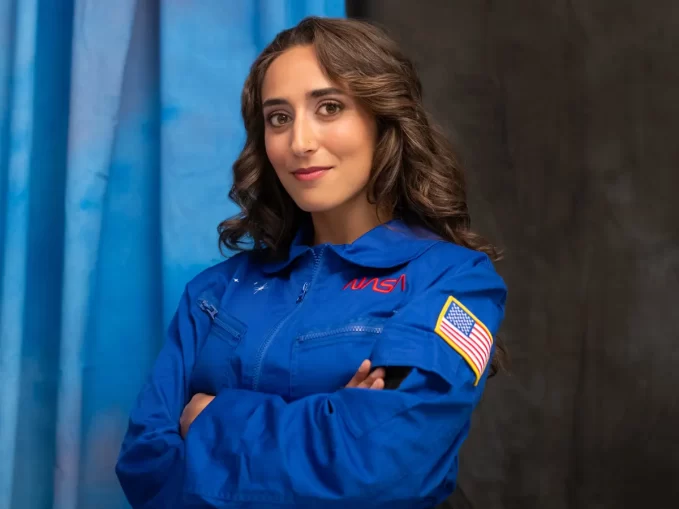
Sarafina El-Badry Nance, an Egyptian-American astrophysicist, offers readers a glimpse into her journey as a woman of color growing up to become a scientist in her debut memoir, “Starstruck.” At the age of 30, Nance is not only an ardent communicator of cosmology but also an advocate for women’s health, having undergone a preventive double mastectomy. Through her memoir, she weaves her personal narrative with explanations of our understanding of the universe. Nance is currently pursuing her PhD at the University of California, Berkeley, delving into the study of exploding stars, specifically supernovae.
One might wonder if Nance’s age is early for writing a memoir. After all, she has numerous personal and professional experiences yet to come. Nance acknowledges this sentiment but believes that sharing her experiences is valuable at this juncture. Her path through educational systems and institutions designed with a bias toward straight white men has been challenging and impactful. She believes that her story can resonate with other young women and individuals who have felt marginalized, as well as those with a curiosity about the cosmos.
Nance’s passion for astronomy originates from a deep love for the night sky that sparked when she was only four or five years old. Listening to “StarDate,” a US National Public Radio show, captivated her with its enchanting presenter. However, what truly captivated her was how these celestial objects she observed contextualized her world. Growing up, Nance struggled with anxiety due to familial dynamics and academic pressure. The vastness of the night sky provided solace by making her feel small in the grand scheme of things, an enduring feeling that steadies her during overwhelming moments.
The challenges faced by women and minorities in the fields of science, technology, engineering, and mathematics (STEM) are evident in Nance’s experiences. Comments like “Astronomy isn’t for you” from an astronomer when she was just ten years old, as well as inappropriate behavior from a physics professor, left a lasting impact. Over time, such comments instilled a belief that she didn’t belong. Nance explains how these subtle yet consistent messages shaped her perception of her worth.
To address the underrepresentation of women and people of color in STEM, Nance emphasizes the importance of dispelling the assumption that they lack interest. Allyship and mentorship play crucial roles in supporting individuals throughout their journey. Nance is grateful for the privilege and support provided by her mentors, who happened to be white men. She believes that those in positions of privilege and power must step up to dismantle systems of oppression.
In 2019, at the age of 26, Nance made the decision to undergo a preventive double mastectomy and breast reconstruction due to the presence of the BRCA2 genetic mutation. While the procedure is controversial due to its varying outcomes, Nance felt empowered by reclaiming agency over her health and reducing her risk of breast cancer.
Nance’s unexpected photoshoot for Sports Illustrated in 2022 raised questions about her decision to participate and the potential objectification associated with the magazine. She clarifies that the application process focused on her passions and her surgery decision, not bikini photos. While she acknowledges society’s emphasis on a woman’s body, she undertook the photoshoot to rebuild a connection with her own body, independent of external judgments.
Impostor syndrome, a feeling of not belonging often experienced by women and minorities, affected Nance profoundly, leading to anxiety and panic attacks. Finding supportive communities and mentors who shared her background aided in combating this syndrome. Over time, her perspective on impostor syndrome evolved. Instead of attributing it solely to herself, Nance recognized it as a response to an environment that isn’t inclusive, a reflection of broader systemic issues.
Currently pursuing her PhD, Nance focuses on studying massive, single-star system explosions, known as Type IIP supernovae, to determine the universe’s expansion rate. As she anticipates graduation in the coming year, Nance remains excited about blending her love for science, space, and communication in unique ways.
For aspiring young women interested in astronomy careers, Nance’s advice is resolute: Defy anyone who questions your capabilities. No one else can dictate what you love or how you love it. While systemic privilege can pose challenges, perseverance can overcome them, provided the pursuit feels rewarding and safe.










Leave a Reply